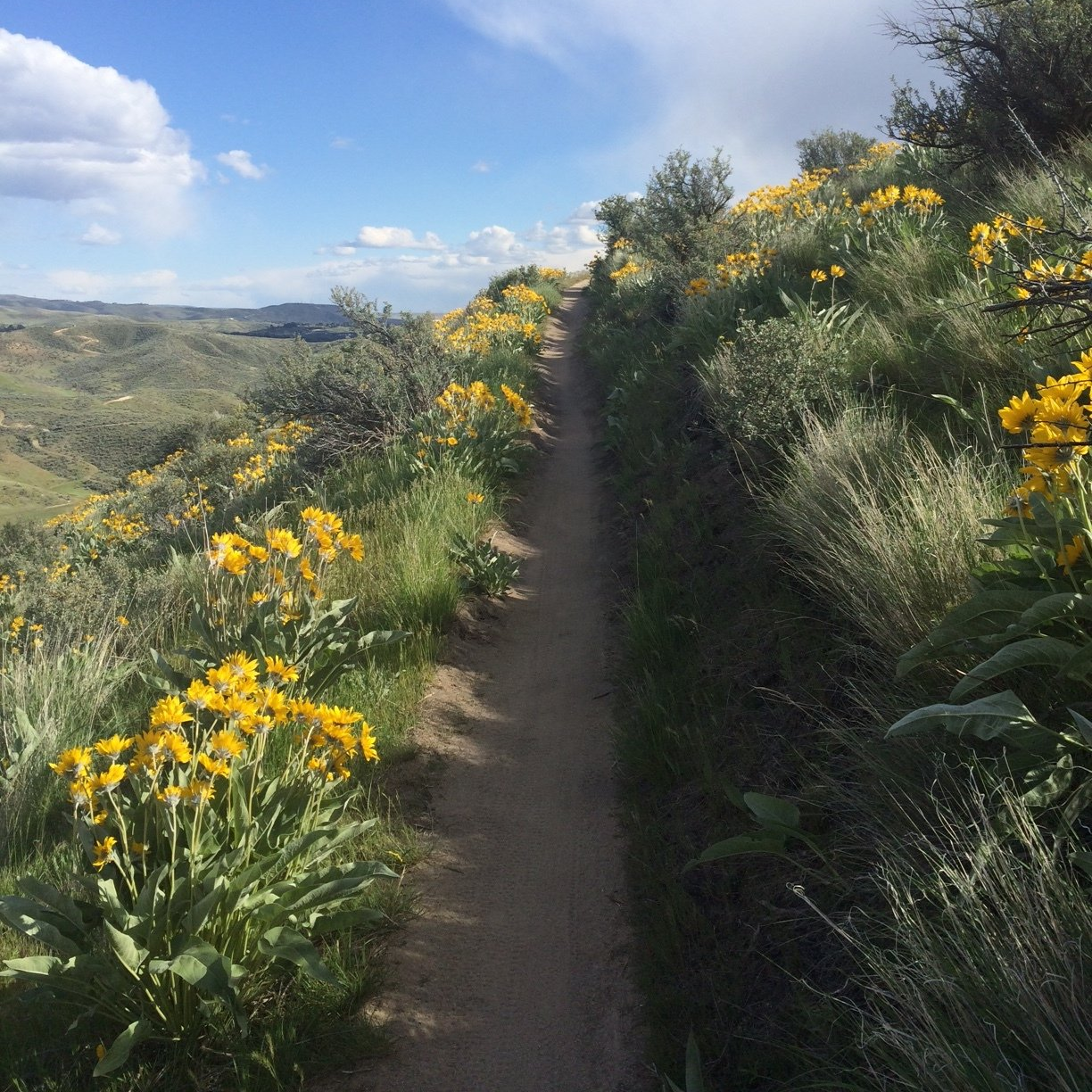Seeds of Resilience
"He who has a why to live can bear almost any how." Victor Frankl quoting Friedrich Nietzsche
I love the brief window of time when the Boise foothills are in full color, and this Spring of 2019 seems to be especially brilliant. Hillsides generally adorned with a few clumps of arrowleaf balsamroot are, this year, fully dressed in yellow. Walking along the flower lined trails feels like wading in a sea of gold. It is spectacular!
I’m not the only one enamored by magnificent wildflowers. I’ve read that in parts of Texas and California, this year rates as a Super Bloom, and in some places, the display is the most impressive in a decade. Each year, people across the country anticipate the show, but for exceptional wildflower blooms there must be just the right conditions. Heavy rains in late fall followed by consistent precipitation throughout the winter and early spring are required. Without this pattern, most of the seeds don’t germinate. They lie dormant, awaiting the arrival of a year in which they can thrive.
Isn’t it fascinating to think of those tiny seeds, buried in parched soil, surviving years of the summer’s blazing sun and the winter’s bitter cold, just waiting for the conditions which will allow them to flourish? This is a wonderful demonstration of resilience.
Resilience: an ability to recover from or adjust to misfortune or change (according to Merriam-Webster ).
In the natural world, resilience is visible in
many forms: the lush meadows that arrive after a forest fire has blackened the
land, the green plants that find a way to sprout in the cracks of city
sidewalks, the tiny seeds of wildflowers which survive years of drought and
then open up in vast fields of color.
And in the world of humans, resilience also comes in different shapes,
which Jane McGonigal
described in terms of the
physical, mental, emotional, and social.
Physical resilience is the body’s ability to heal and rebound from
stress. Mental resilience manifests itself in motivation, focus, and
willpower. Having emotional resilience
gives a person the ability to access positive feelings. And summoning needed support from friends,
family, and others is evidence of social resilience. Any one of these forms of resilience is a
powerful quality.
In 2017, I co-authored a book, No One Fights Alone: The Steve-O Stories , about my friend Steve Andrews. In 2014, Steve lost his two year battle with cancer, a battle which inspired everyone who was fortunate enough to know him. Throughout his life he showed true strength of character, but his response to his diagnosis of stage four cancer was nothing short of breath-taking. It was Steve’s strength in adversity which inspired me to begin the project of collecting his words and stories into a book.
By writing the book, I hoped to continue to spread Steve’s positive message, and I also hoped that by working with Steve’s words and the stories from his life I would find a new depth of understanding of where such personal strength comes from. In the book I shared stories of his strength, persistence, grit, courage, optimism, kindness, generosity, gratitude, faith, love, and the trifecta of prayer, positive thinking, and friends and family which Steve referred to as his X-Factor. But I believe I missed something. I believe I failed to identify Steve’s deep capacity for resilience.
I now see physical, mental, emotional, and social resilience as the thread that connected all of Steve’s incredible strengths as he bounced back from the countless challenges of his cancer battle. His physical response to months of kick-you-in-the-butt-chemo was to continue his triathlon training - even competing in the Boulder Half Ironman after ten months of chemotherapy. His mental response to the terminal diagnosis was to stay focused on his professional goals by continuing his work as a corporate CFO and his studies in a rigorous Executive MBA program. His emotional response to the knowledge that there was no long-term cure for his cancer, was pure optimism. He said “Bottom line... I consider this a win - win situation. If I conquer this disease I will have more time to positively impact others in the world. If cancer prevails, I will have the joyous opportunity to cross into the Pearly Gates of Heaven.” And Steve’s social response to the tough battle ahead was to show nothing but gratitude and love as he called upon his family and friends for support. That is textbook resilience.
After knowing Steve, I’m convinced that resilience in its different forms is at the core of many positive qualities, and it seems that it is something that can be nurtured and developed. In her research, Jane McGonigal indicated that gratitude is one of the best ways to increase social resilience. And Victor Frankl’s work revealed that loving another was one of the things that could give a person the “why” to live in the most challenging of situations. So I’m wondering if gratitude and love might be the seeds of resilience and the many strengths which grow out of it.
Bending with the wind,
a little flower grows in
gratitude and love.
Recommended Resources
Man’s Search for Meaning by Victor Frankl
No One Fights Alone: The Steve-O Stories by Kelly Anderson with Steve & Julene Andrews, Family, and Friends
SuperBetter: The Power of Living Gamefully by Jane McGonigal











